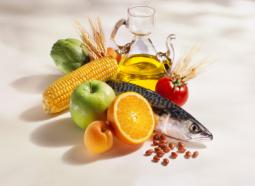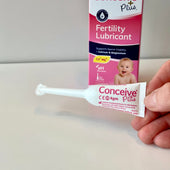Superfoods, Supplements and Fertility

Kale. Whole grains. Beets. Berries. While superfoods can’t guarantee a successful IVF cycle, they contribute to sperm and egg quality and overall fertility health.
“Food sources that are high in antioxidants such as berries, sources of monounsaturated fats like avocado and nuts, using olive oil for cooking and salads, and supplementing with omega 3 fatty acids are diet recommendations for both women and men,” says Dr. Brooke Friedman, a fertility doctor with Reproductive Partners UCSD Regional Fertility Center. “We recommend against diets that are high in animal protein, in particular red meat, and avoiding foods with trans fats like fried foods and donuts,” she adds. Friedman also recommends both men and women take a multi-vitamin supplement – hers should be a prenatal vitamin.
For men and women
“We know that things that are good for the heart are good for the sperm,” Friedman says. As a result, a Mediterranean diet, one with less animal protein and less trans fats can play a role in male fertility. Friedman recommends increasing antioxidants like Vitamin C for men over the age of 40 or with any abnormal semen analysis and increasing Omega 3 and astragalus supplementation particularly for men with low morphology. Omega 3 fatty acids help maximize blood flow to the testicles, and have been shown to improve sperm quality.
Omega 3 supplements are beneficial for women too, by helping to maximize blood flow to reproductive organs and may help with embryo implantation. For women over the age of 37, Friedman recommends increasing intake of antioxidants like Vitamin C, to help with egg quality, and considering the addition of CoQ10.
Foods to avoid when trying to conceive
Peas: A chemical in peas have anti-fertility effects for both men and women. Scientists discovered that the birth rate in Tibet was considerably lower than other parts of the world. The cause was found to be peas, a staple food for the population. In clinical trails performed in the USA women were given the chemical (in capsule form) found in peas and pregnancies dropped by 60%. In men sperm rates were slashed by 50% too.
Soft drinks: Soft drinks contain more sugar than almost anything else you can eat. A single can contains approximately 10 teaspoons of sugar. Unfortunately, switching to diet soda won’t solve the problem.
Soy Products: Soy foods contain a natural source of estrogen which can be beneficial but if you are trying to get pregnant any excess in estrogen can cause hormonal imbalances. The result is often interference with ovulation and egg production. It is therefore wise to avoid all forms of soy foods when you are trying to get pregnant.
Pregnancy tips to help you conceive
The time to start working toward a healthy pregnancy is before you conceive. If you are trying to get pregnant quick, our pregnancy tips are good start to get your body ready for conception process.
Can Conceive Plus help?
If you have just started trying to get pregnant or have been trying for a while, Conceive Plus® can help increase your chances of conception naturally! Recommended by doctors, pharmacists and fertility clinics in more than 60 countries!












